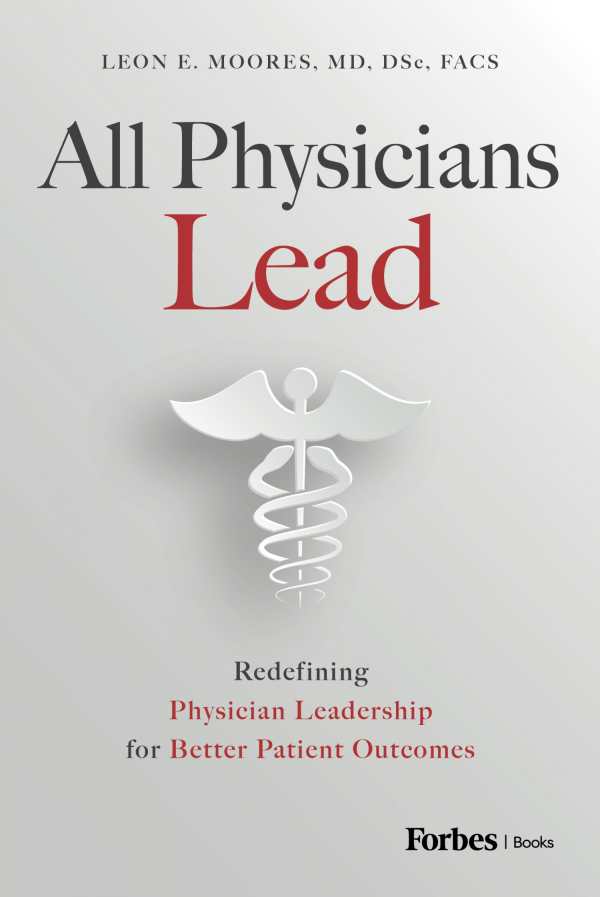All Physicians Lead
Redefining Physician Leadership for Better Patient Outcomes
All Physicians Lead makes credible arguments about the importance of doctors exercising strong leadership skills.
Leon E. Moores’s career guide All Physicians Lead is about the key role that leadership plays in a doctor’s work.
Arguing that physicians are inherent leaders, the book defines leadership as seeking to influence the thoughts and actions of others. All doctors do this, Moores says, regardless of whether they are in charge of their organizations or not. Further, the book argues that better physician leadership leads to better patient outcomes and thus better health-care systems in general.
The book’s three sections focus on aspects of physician leadership, including why it matters, how to exercise it, and what programs and changes should be implemented. In each section, the prose is direct and focused on supporting the book’s overarching thesis: that, because all physicians lead, leadership ought to be considered a core competency of practicing medicine. Indeed, Moores says, the topic should be included in physician training, beginning in medical school.
In order to show the different levels of physician leadership, the book introduces a model dubbed the concentric circles of leadership. This explains how a physician’s need for advanced leadership starts at the individual level and widens in scope to include leading patients and teams. This model, introduced in the book’s second section, has a further reach than the rest of the text: the advice on how to lead oneself, with its clear list of what that entails and actionable tips, is applicable to other careers and lives.
The book’s claims are supported by scenarios in which doctors exemplify varying degrees of leadership skill. Quite often these are negative examples, illustrating how poor leadership leads to worse patient outcomes and low morale among hospital staff—a domino effect that affects medical institutions as a whole. Sport analogies also complement the arguments, though they muddle the book’s focus: to illustrate accountability as a vital leadership element, there’s a reference to the New England Patriots, whose coaches took full responsibility for mistakes and gave their team full credit for successes. And the book also points to the US military for examples of leadership success, arguing that it should be the blueprint for medical schools, hospitals, and professional organizations—a line of argument that reflects Moores’s 2013 development program for army physicians but that dilutes this project’s focus somewhat.
All Physicians Lead is a persuasive career guide that argues for improving physicians’ leadership training. It closes on a series of ideas for implementing leadership training at every level of a physician’s career, along with an intriguing prediction regarding the future state of medical leadership.
Reviewed by
Carolina Ciucci
Disclosure: This article is not an endorsement, but a review. The publisher of this book provided free copies of the book and paid a small fee to have their book reviewed by a professional reviewer. Foreword Reviews and Clarion Reviews make no guarantee that the publisher will receive a positive review. Foreword Magazine, Inc. is disclosing this in accordance with the Federal Trade Commission’s 16 CFR, Part 255.

